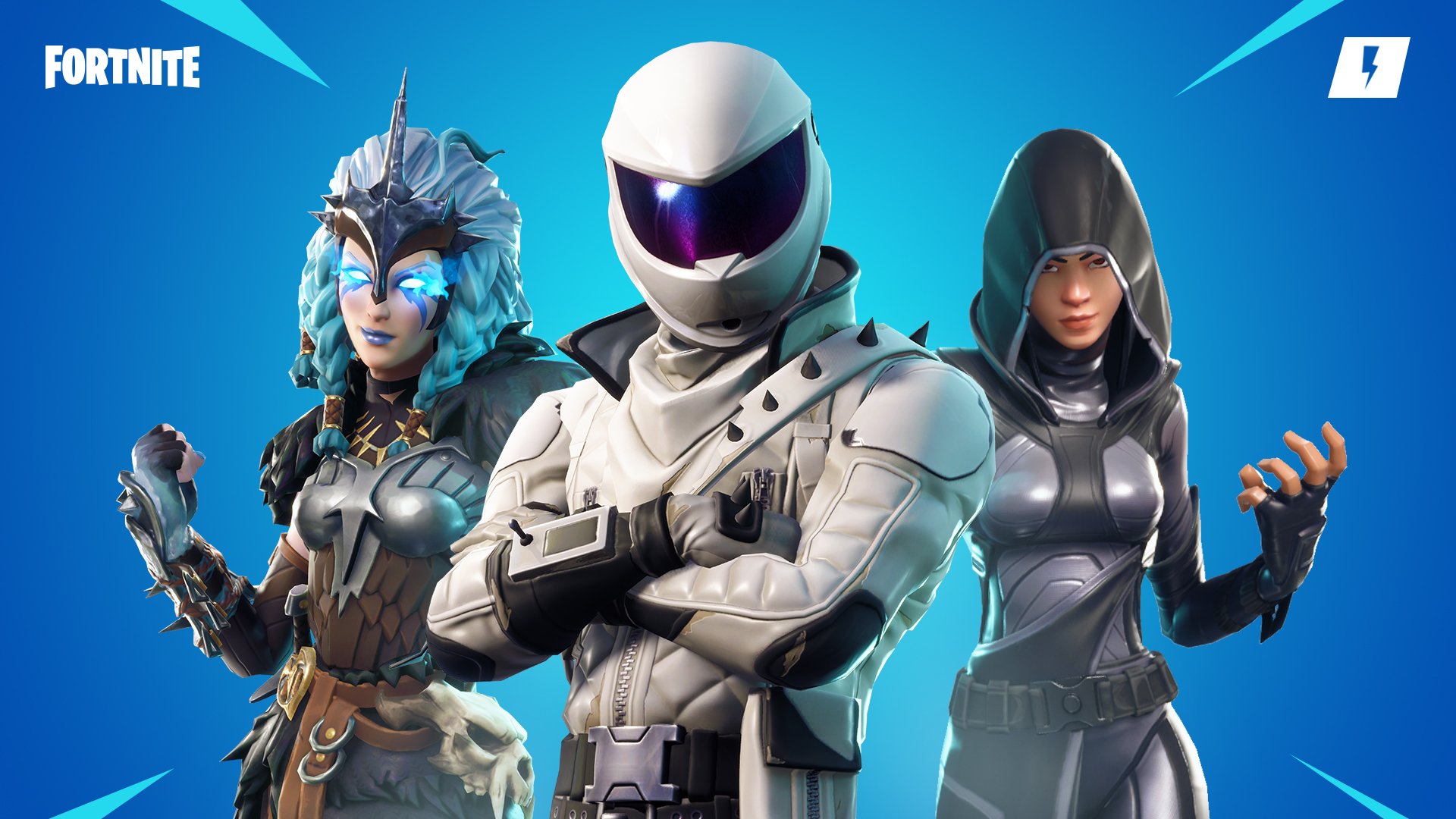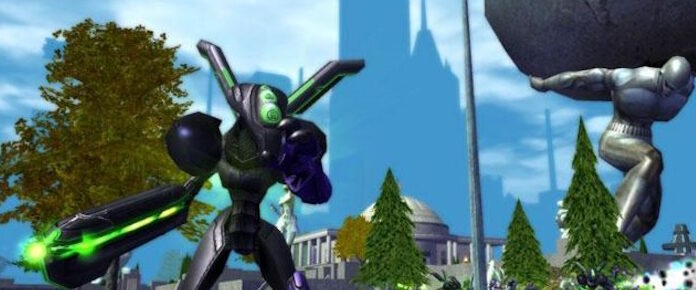
Welcome friends to the inaugural post of Lawful Neutral on Massively OP. I’m Andy, but you know me better as Serrenity, writer of comments too long by half and not nearly as clever as I hope. I’ve been wanting to up my writing game for a while, so when the call went out, I decided to put my money where my mouth was, or in this case, put my mouth where my money is – but that sounds like a great way to RL version of the blood boil disease so… moving on. I thought I would kick off my column with everyone’s favorite not-an-MMO, Fortnite, and the flurry of copyright lawsuits brought against Epic Games.
Fortnite isn’t any stranger to causing angst for copycatting something that’s already successful. Bluehole, the creator of PUBG, was upset with Epic for allegedly copying PUBG with its own battle royale mode for Fortnite. While nothing ever came from Bluehole legal-wise, it certainly set the tone for Epic Games. Following the wild success of Fortnite, Epic again popped up in the news for supposedly copying other people’s work.
In December 2018, Terrance Ferguson, aka 2 Milly, filed a copyright lawsuit against Epic Games for including an emote called “Swipe it.” He claimed the emote is an identical copy of his dance, Milly Rock. He was soon joined by a cast of other characters — Alfonso Ribeiro, Russel Horning aka the Backpack kid, BlocBoy JB, and Orange Shirt Kid. The law firm, Pierce Bainbridge, represents all five plaintiffs, and the lawsuits contained almost verbatim language. They also all asked for the same things in damages: a block on Epic using the dance moves, a part of Epic’s profits, punitive damages, and attorney fees. Jaylen Brantley and Jared Nickens have also filed a lawsuit against Epic over the “Running Man” emote through a different firm, but the lawsuit asked for the same thing as the other five.

The arguments
Before we dive into this, we need to pause for just a moment. That Epic Games copied these dances from people is indisputable. Even Epic isn’t disputing that. Copying people’s creative works without permission or compensation is immoral and unethical. It’s important to remember as we go that “legal” does not mean moral or ethical, and we are exploring the legal side of these lawsuits.
The plaintiffs alleged that Epic Games is using their intellectual property without their permission. According to the Copyright Act of 1976, you can copyright a choreographic work. But your dance has to meet one or more criteria to be considered a choreographic work. The criterion most interesting to us is this one:
“A series of dance movements or patterns organized
into an integrated, coherent, and expressive compositional whole,”
The lawsuits implied that the dances Epic Games copied meet this criterion for filing copyright claims. David L. Hecht, the lawyer representing five out of the six lawsuits, argued it this way: “So if we were talking about music [and] you had a song and they sampled from another song, we would say that that’s copyright infringement.” Hecht based his arguments on the idea the dances copied by Epic are complete choreographic works. As choreographic works, they should enjoy copyright protection.
Epic Games took a three-pronged approach to its defense. The first and strongest argument was that the dance moves it copied are too generic, simple, and short to be complete choreographic works. The Copyright Act actually explicitly excludes dance steps:
“Individual movements or dance steps by themselves are not copyrightable, such as the basic waltz step, the hustle step, the grapevine, or the second position in classical ballet. The U.S. Copyright Office cannot register short dance routines consisting of only a few movements or steps with minor linear or spatial variations, even if a routine is novel or distinctive.”
Epic Games claimed that the plaintiff’s dances don’t qualify for copyright because they are basic steps as defined in the Copyright Act. The company’s motion to dismiss also referenced a “chilling effect” as a result of copyrighting such simplistic moves. What would happen if you could copyright Flossing, for example? Jessica Litman, a law professor at the University of Michigan says, “Whenever anyone performed The Floss on the dance floor in a club, Backpack Kid could bring suit against the club. The club would have to say to people don’t wave your arms.”
Epic Games gave two other copyright defenses in the event the first failed. It alleged that the plaintiff’s dance step is an idea, and you can’t copyright an idea, only the expression of that idea. This is a solid argument, but ultimately weaker than the first one because it’s more ambiguous. Epic’s final defense, in the event the plaintiffs do eventually receive the copyright, is that the emotes are different enough from the original dance to avoid copyright infringement. If I could give side-eye via text, I would be doing it here. Epic spent the whole motion to dismiss arguing that it doesn’t have copyright protection, but in this last argument, it basically says, “but just in case, they are different!”

The outcomes
It looks as if Epic Games is going to come out on top here in the end. Its argument is compelling and fits with precedent (check out the motion to dismiss for the full list). The Copyright Office seemingly agreed and denied copyright registration for Ribeiro and Ferguson on grounds that the works don’t constitute a choreographic work. While Hecht has vowed to appeal the Copyright Office’s rejection, it doesn’t look promising. The Backpack Kid was able to get a copyright for Flossing, but only by creating a 30-second variant, not for the Flossing Dance move itself, meaning that copyright is likely not beneficial in the context of this lawsuit.
Outside of the copyright claims, a few of these plaintiffs have some questionable claims. For example, the Copyright Office actually challenged whether Ribeiro could even claim copyright for the Carlton, raising the question of ownership: Does he own it, or does NBC own it from the original Fresh Prince of Bel Air, or does ABC own it from his performance on Dancing with the Stars?
It is also unclear whether Brantley and Nickens can claim ownership of the Running Man dance as they didn’t start the Running Man Challenge. The Orange Shirt Kid submitted his dance to Epic Games as part of a contest to have it included in Fortnite, so he wasn’t entitled to monetary compensation as part of the contest. It’s unclear how Orange Shirt kid (or rather, his family) is hoping to capitalize on the dance submitted as part of a contest to be included in the game… because his dance was included in the game.
 Unfortunately for the plaintiffs, most of this is now moot. A related decision from the Supreme Court earlier this month changed the standard for filing copyright lawsuits. Previously, you could bring a lawsuit as long as you had applied for the copyright registration, even if it hadn’t been granted yet. Now, though, the precedent is such that copyright registration has to have been granted before you can bring a copyright lawsuit. As of this writing, five of the six lawsuits have been withdrawn, with only the Running Man lawsuit still in play. According to Hecht, the plaintiffs will refile the lawsuits once they’ve been granted copyright and meet the new standard. But based on Ribeiro’s and Ferguson’s defeats at the Copyright Office, it’s unlikely to they will be able to bring the lawsuits again.
Unfortunately for the plaintiffs, most of this is now moot. A related decision from the Supreme Court earlier this month changed the standard for filing copyright lawsuits. Previously, you could bring a lawsuit as long as you had applied for the copyright registration, even if it hadn’t been granted yet. Now, though, the precedent is such that copyright registration has to have been granted before you can bring a copyright lawsuit. As of this writing, five of the six lawsuits have been withdrawn, with only the Running Man lawsuit still in play. According to Hecht, the plaintiffs will refile the lawsuits once they’ve been granted copyright and meet the new standard. But based on Ribeiro’s and Ferguson’s defeats at the Copyright Office, it’s unlikely to they will be able to bring the lawsuits again.
My takeaway is that no one in this situation is a saint. Epic Games is being unethical by copying and profiting from the work of others with compensation. But the plaintiffs here come off as more wanting in on Epic’s profits than protecting their intellectual property. Between the shaky copyright claims and the supreme court ruling, I expect all these lawsuits to fade into oblivion without any clear resolution. And I expect Epic Games to continue act unethically here as it know it can get away with it.
Let me know what you think in the comments below. And if you have a law or business topic relating to online games that you’d like me to cover in the future, feel free to put it in the comments or shoot me an email!
 Every other week, Andy McAdams braves the swarms of buzzwords and esoteric legalese of the genre to bring you Massively OP’s Lawful Neutral column, an in-depth analysis of the legal and business issues facing MMOs. Have a topic you want to see covered? Shoot him an email!
Every other week, Andy McAdams braves the swarms of buzzwords and esoteric legalese of the genre to bring you Massively OP’s Lawful Neutral column, an in-depth analysis of the legal and business issues facing MMOs. Have a topic you want to see covered? Shoot him an email!













